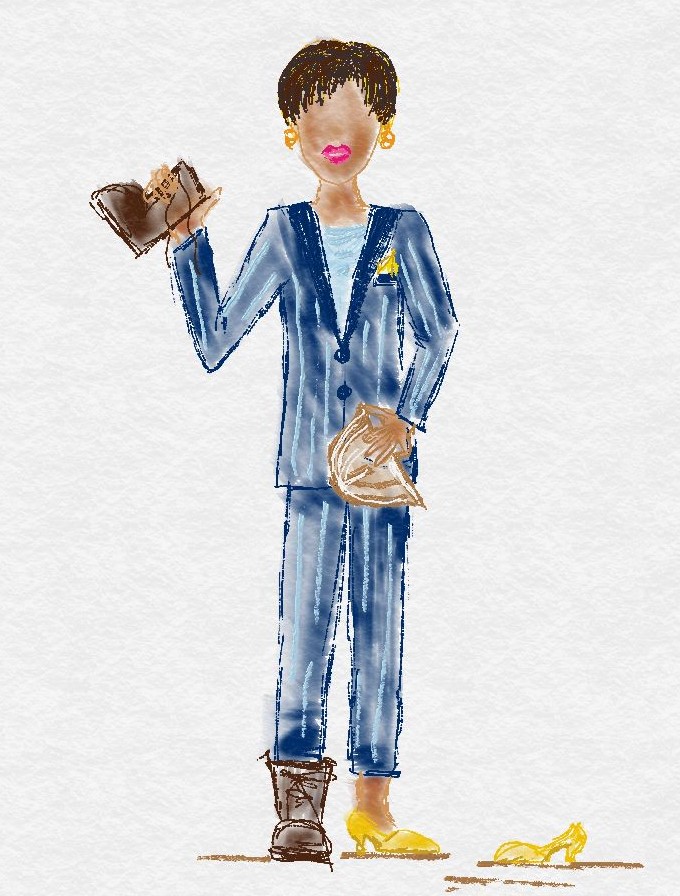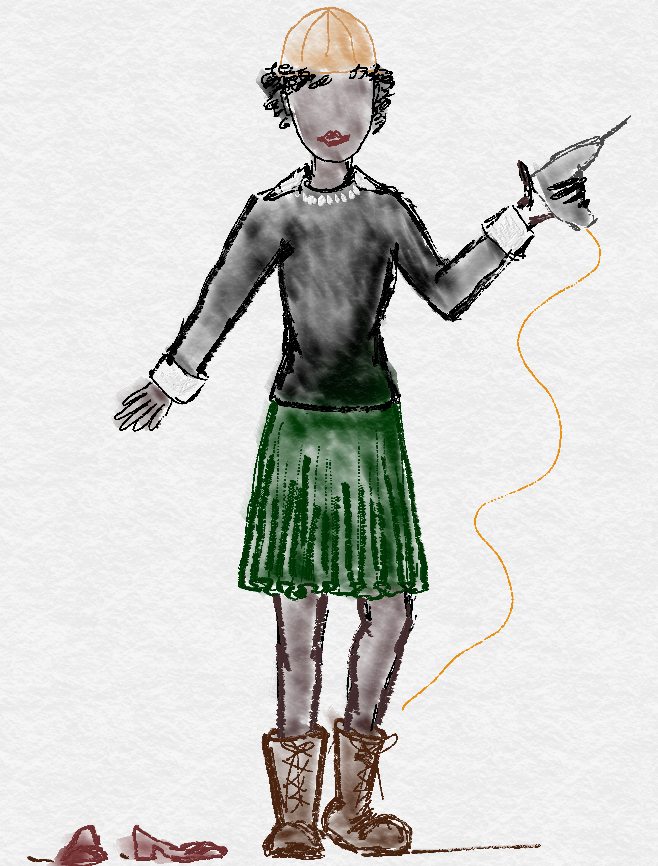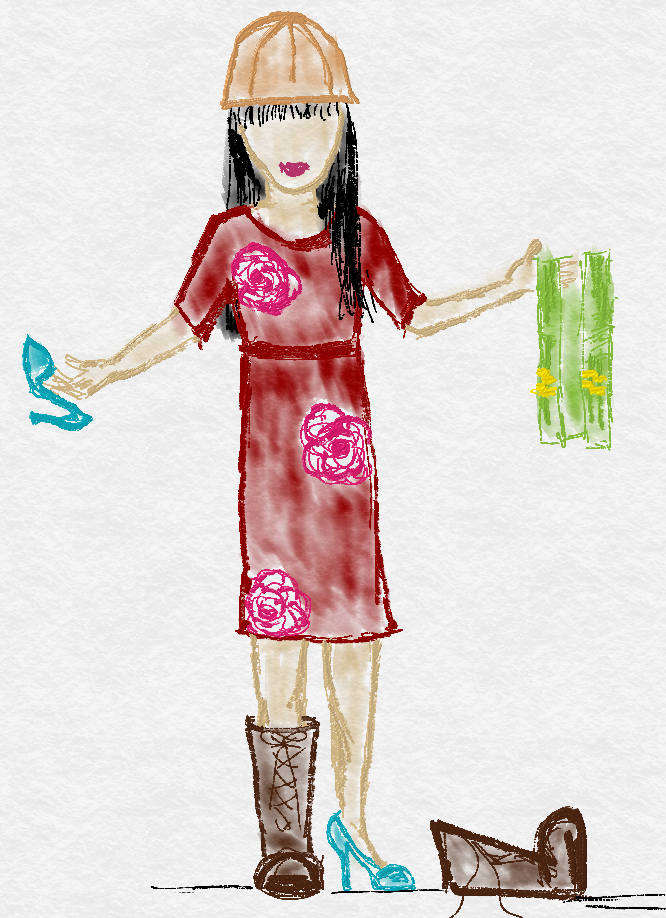Beyond an Epidemic
Good Enough

A few weeks ago, I came across this blog post (click to follow the link) and my response was a resounding “Yes!” Yes to the idea that we should be happy with accomplishments first for ourselves. Yes to less looking to others for affirmation. In my mind, the post was all about stopping ourselves from constantly asking, “Was that good enough? Did I do what I was supposed to do? Was that enough to prove my worth?”
So, I wrote a post about this for Underpinnings, and I sent it to Helen for her expert editorial review. She responded with, “Can we talk about this?” I speak fluent Helen, so I said, “So, you hated it.” This led to an animated discussion that revealed that I had not done a good job expressing myself. I hadn’t really said what I wanted to say, and I realized that some of my poor communication stemmed from the fact that I had not fully worked out how I felt about this issue. Was I objecting to praise? No, not really. I did feel like that often praise for women in our field has a bit of a well-that’s-great-no-one-expected-you-to-do-well-because-you’re-a-girl feel to it. But that wasn’t really the crux of it. Of course I believe in praise – just ask my stepdaughter. She used to say, “I know, I appreciate it, but you always think we can do anything well.” So why did this pitch for looking for your own praise first resonate with me so strongly?
As I was trying to figure this out (in order to write a post that actually made sense), I got a phone call saying that a young relative very close to me had tried to commit suicide. A phone call like this never makes sense. How could it? How could a young teenager have experienced enough to decide that nothing here would make it worthwhile to stick around? This is an individual with friends and hobbies who is consistently at the top of her class. How does this compute? It doesn’t. And sadly, as I bawled to my always-supportive friends, many told me that they knew of other young women in the same age bracket right now who were battling depression and anxiety. No coronavirus can be held accountable for this epidemic, and the casualties are certainly much higher. How did we get here?
My original rumination on the nature of our need for praise seems to have some place in this discussion. Until a hundred years or so ago, the everyday tasks and responsibilities of most women did not involve opportunities for praise. Beyond accolades for a well-cooked dinner (if they were lucky) or congratulations on birthing a strong child (without dying in the process), women were relegated to the world of servitude, and servants don’t get praise. A good servant is someone who follows the rules and doesn’t get reprimanded. Actually, for most of the world’s population, men included, daily life was too full of tasks necessary just to survive to get much praise. “Nice job keeping us alive through the winter,” probably wasn’t a compliment doled out too frequently, even if it was valid.
As the business of staying alive through modern conveniences allowed people to engage in pursuits where praise might be more appropriate on a regular basis, women still were stuck in a narrow aisle of domestic pursuits. But the modern conveniences gave them the opportunity to excel, not just survive. The many “women’s magazines” that arose during the twentieth century attested to the fact that women were striving for some sort of achievement. Here’s a fabulous Jell-O mold – did I do that well? Look how clean my kids’ clothes are – am I a great mom? Here’s a cocktail I invented for my husband for the end of his workday – am I smart? Even though women were making advances in equality, they did it within the framework of proving their worth. They had to. Because the law had said for hundreds of years that they didn’t have any worth. So they were going to prove themselves within the categories they were allowed to inhabit. The women striving for achievement outside the sanctioned areas were considered to be dangerous influences and reckless rebels.
The problem with the structure of affirmation was that the implications of many preceding years was built into the approvals. You can be commended for having well-behaved children who wear perfectly ironed clothes because it means you’re staying in your lane. The stronger the praise given, the more other women would want to strive for the same goals. So the system reinforced the original scheme of oppression while seemingly giving women more opportunities to succeed.
And we bought into it. In our enthusiasm for being betterstrongerfaster, we devoured the magazines and videos telling us how to be prettier, how to get thinner, how to do better in school, how to have a more fabulously decorated house. We got competitive within the lane we had been given without realizing we were reinforcing the outside lines.
In the past 40 years, more and more women have decided that the lanes are too narrow. We have widened our selection of acceptable careers and we have tried to normalize workplaces that are equal. We’ve even been able to change the accepted standards of beauty that were unrealistic and discriminatory towards all women except four or five anomalous girls who were blessed with freakishly fantastic genes. But we have not been able to shake our drive to prove ourselves. We’re still looking for an atta girl, a confirmation that we did a good job and we deserve to be….wherever we are. Why? Men obviously don’t do this. Have you visited the Men’s Interest magazine section in your local bookstore? The headlines imply, “You’re already crushing it – here’s a way to have an even better time while you’re conquering the world.”
I’m afraid we have successfully changed the professional landscape for women everywhere without addressing the entrenched social expectations and behavioral patterns that have been drilled into females for thousands of years. I refuse to believe that the current rash of depressed teenagers is solely a product of social media. That’s an answer that’s too easy. Yes, social media creates a whole mess of complications when dealing with the normal horror show that is adolescence for most people. But we have to address the foundation we are providing for kids, particularly girls, who are living in a world that is vastly different for their gender than it was 100 years ago. How do we break out of this infinite loop of quest for achievement and praise to define worth? How do we let girls know that success does not come from being a blue-ribbon rule follower, because many of the rules are sexist crap? How do we turn all of our progress over the past century into real opportunity rather than just a wider array of roles in which we wear ourselves out saying, “Was that good? Am I good enough?” It’s 2020 – our girls should not be chained to the same debilitating expectations that have limited the women before us.



4 Responses to Beyond an Epidemic